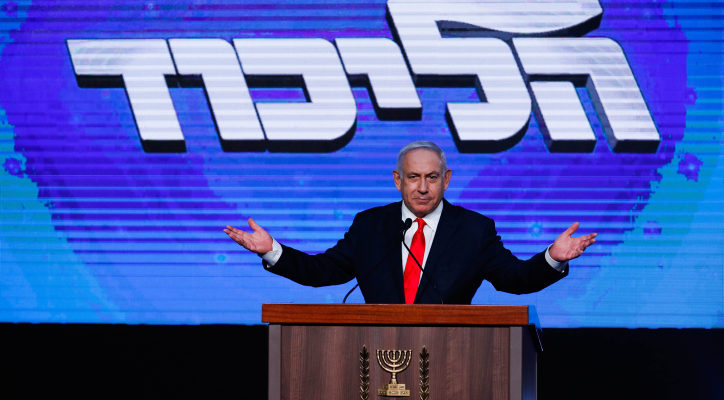A long-established schedule of legally required steps now comes into play on the way to the next government … or new elections.
By Paul Shindman, World Israel News
Israel’s fourth election in two years is over and the tallying of the votes was taking place Wednesday, the first major step in a legislated parade of necessary events that will lead to the next government taking office in Jerusalem – or to new elections.
The election is but one step in a long process enshrined in law that sets out the actions that have to be taken under Israel’s proportional representation democracy.
Final official results must be announced by the Central Elections committee by March 31.
All parties can file appeals against the results until April 14, two weeks after the official results announcement.
Within a week of the publication of the results, President Reuven Rivlin must meet delegations from each of the parties that won seats in the Knesset. They will give him their recommendation as to whom they consider the most likely person to form a government.
Government or no government, on April 6 the newly elected and re-elected members will convene at the Knesset for the official swearing-in ceremony.
By April 7, Rivlin has to call upon the candidate he thinks has the best chance of forming a new government.
That person is given 28 days to meet with prospective coalition partners and reach an agreement to get their support so that at least 61 of the 120 members of the Knesset will vote in favor. The latest deadline for the candidate to reach an agreement is May 5.
If the candidate cannot form a government in that time, Rivlin may grant an additional two weeks, up to May 19.
If that candidate still fails to reach the magic number 61, two options are available.
First, Rivlin will have three days for new consultations with all the parties and then he can choose another party leader to try and form a government. That party, too, would get 28 days for the task.
An alternative is if a majority (61 or more) of Knesset members send a written recommendation to the president for a candidate of their choosing. In such a case, within two days Rivlin must grant that person 14 days to try to form a government.
And if that fails? The Knesset automatically will be dissolved and a date will be set for new elections, which could be as early as September.
Who runs the country in the meantime?
Any time the Knesset is dissolved and goes to elections, the government that was in power until then continues as a “caretaker government.” The Knesset’s committees continue to meet; government offices are open as usual for collecting taxes, getting new passports and registering marriages and other standard business. However, in its caretaker capacity, the government cannot create new legislation nor authorize a budget.
With Israel having just gone through its fourth election in the past two years, Knesset members have had several rounds of gaining experience in caretaker governments, so for the most part they know what they are doing under those circumstances.
Should a Knesset member resign or otherwise leave the house, he or she is automatically replaced by the next person on the party’s list of candidates that was submitted to the Central Elections committee weeks before the election. That list is fixed and cannot be changed between elections.





